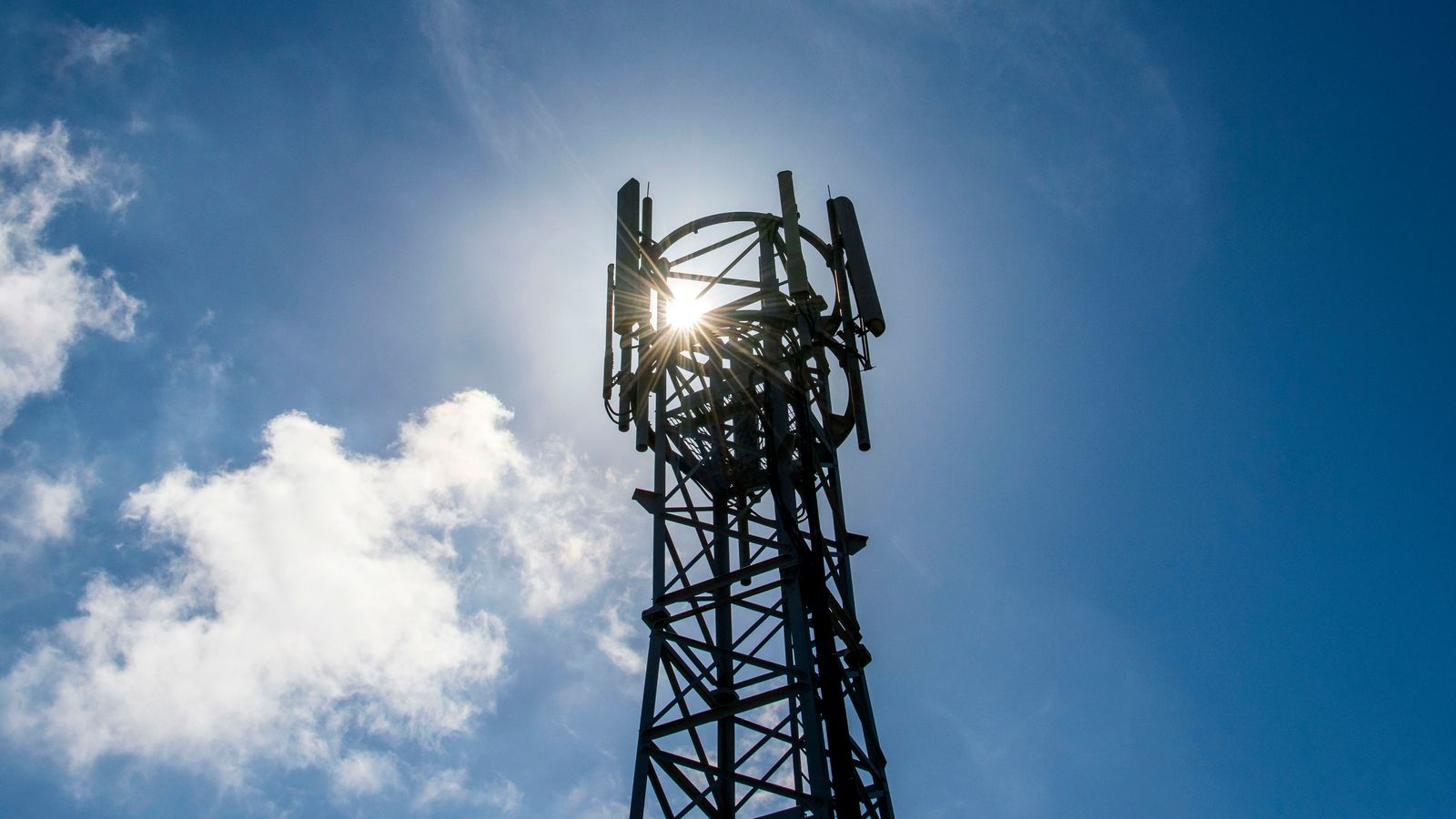Conspiracies have resulted in a number of 5G masts being vandalised over the last few months, despite government warnings.
A new guide to 5G has been published by the government, in an effort to dispel the growing conspiracy that the service harms people’s health.
Some theories have emerged that suggest the emerging technology has links to the outbreak of the coronavirus, and that it can harm people by emitting dangerous levels of radiation – claims which have been repeatedly dispelled.
The campaign of misinformation has resulted in a number of 5G masts being vandalised over the last few months, despite warnings from the government that the damage could prevent emergency calls being made.

Now, digital infrastructure minister Matt Warman and the local government minister Simon Clarke have written to local councils to promote a new guide to the technology, which can be given to worried members of the public to try to curb the growth of the conspiracy theories on social media.
5G Mobile Technology: A Guide, explains how the super fast data connection service works, and says that Ofcom, the media watchdog, found that the waves emitted from the masts are “a small fraction” of the amount allowed under the International Commission for Non-Ionising Radiation Protection (ICNIRP).
The guide, published on Thursday, says: “Companies have been rolling out 5G in the UK since 2019.
“However, some people have raised concerns that the introduction of 5G could affect people’s health and have even linked it to the coronavirus pandemic. These claims are completely unfounded and should not be used as a basis to block or delay 5G rollout.”
In their letter, Mr Clarke and Mr Warman have also called for more to be done to help find new sites for 5G masts and fibre broadband, after Prime Minister Boris Johnson’s commitment to “bring full fibre and gigabit-capable broadband to every home and business across the UK by 2025”.
In order to build the infrastructure, telecoms companies have to secure the rights to construct on public land and buildings, but there are concerns that some deals are progressing too slowly.
Local councils are being encouraged to take into account “non-monetary benefits” when agreeing land access.
Mr Warman said: “Councils have a vital role to play in the roll-out of digital infrastructure and while there is good work going on up and down the country, there is more we can do. Today I’m writing to local authorities with new guidance and advice to help them break down some of the barriers to roll-out and give them the tools they need to quell quack theories about 5G.”
Philip Marnick, spectrum group director at Ofcom, said: “The UK has a great opportunity to be a world leader in 5G – making the most of the benefits this new technology offers people and businesses.
“So it’s important that public bodies work together to address some of the myths and misinformation around 5G, and that decisions are based on sound evidence.”

Labour shadow digital minister Chi Onwurah said legislation needed strengthening to properly protect against 5G misinformation.
She said: “We welcome the government’s moves to tackle the dangerous misinformation about 5G and the coronavirus which is putting lives at risk.
“But sadly, this guidance will not solve the problem without the Government doing what is needed on the online harms bill to tackle misinformation on social media.”

